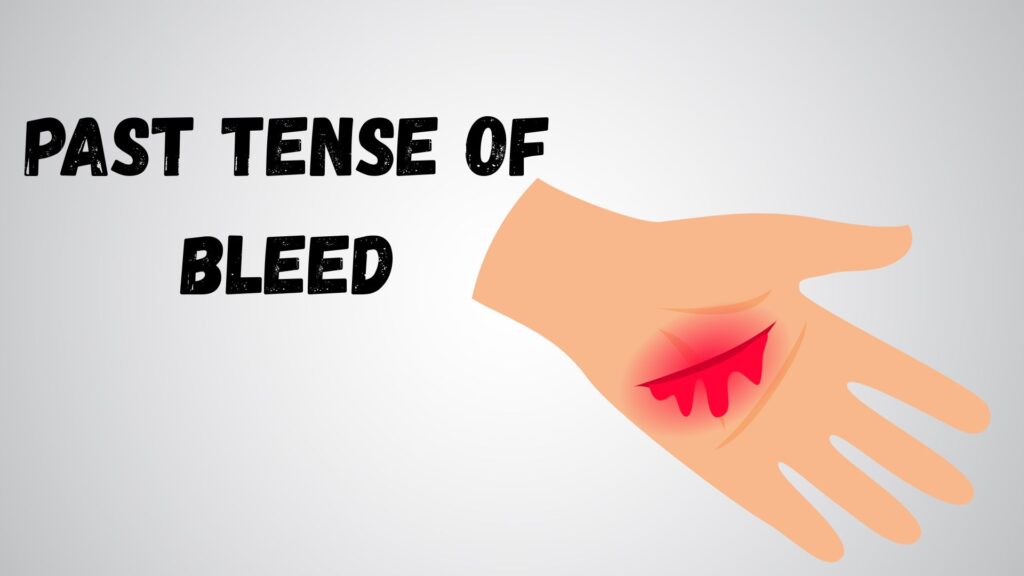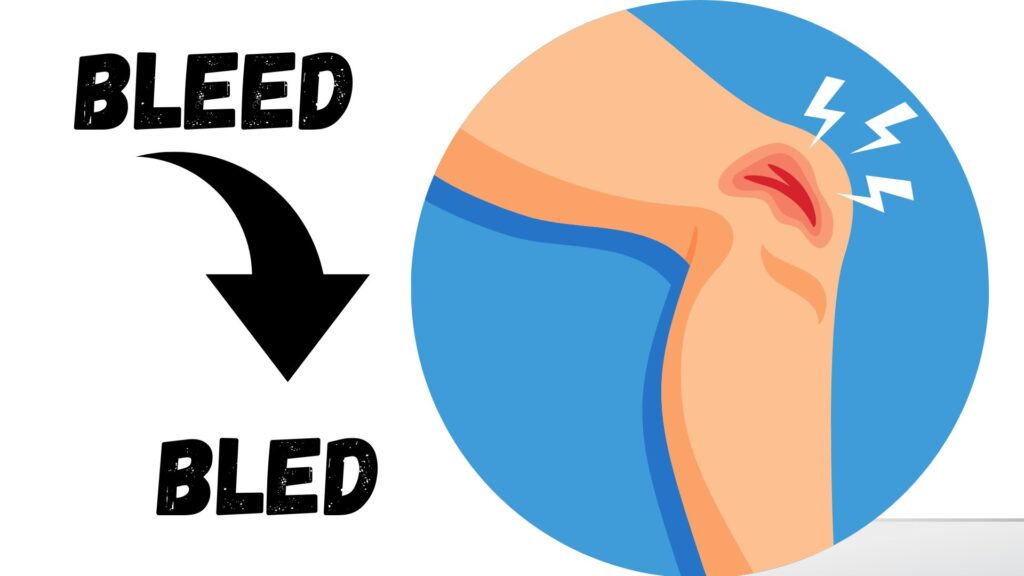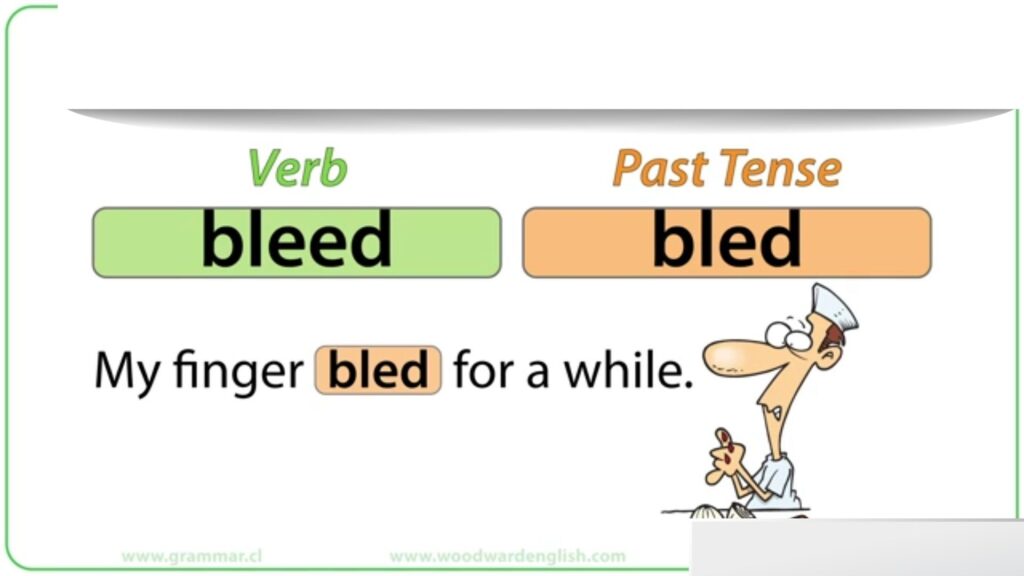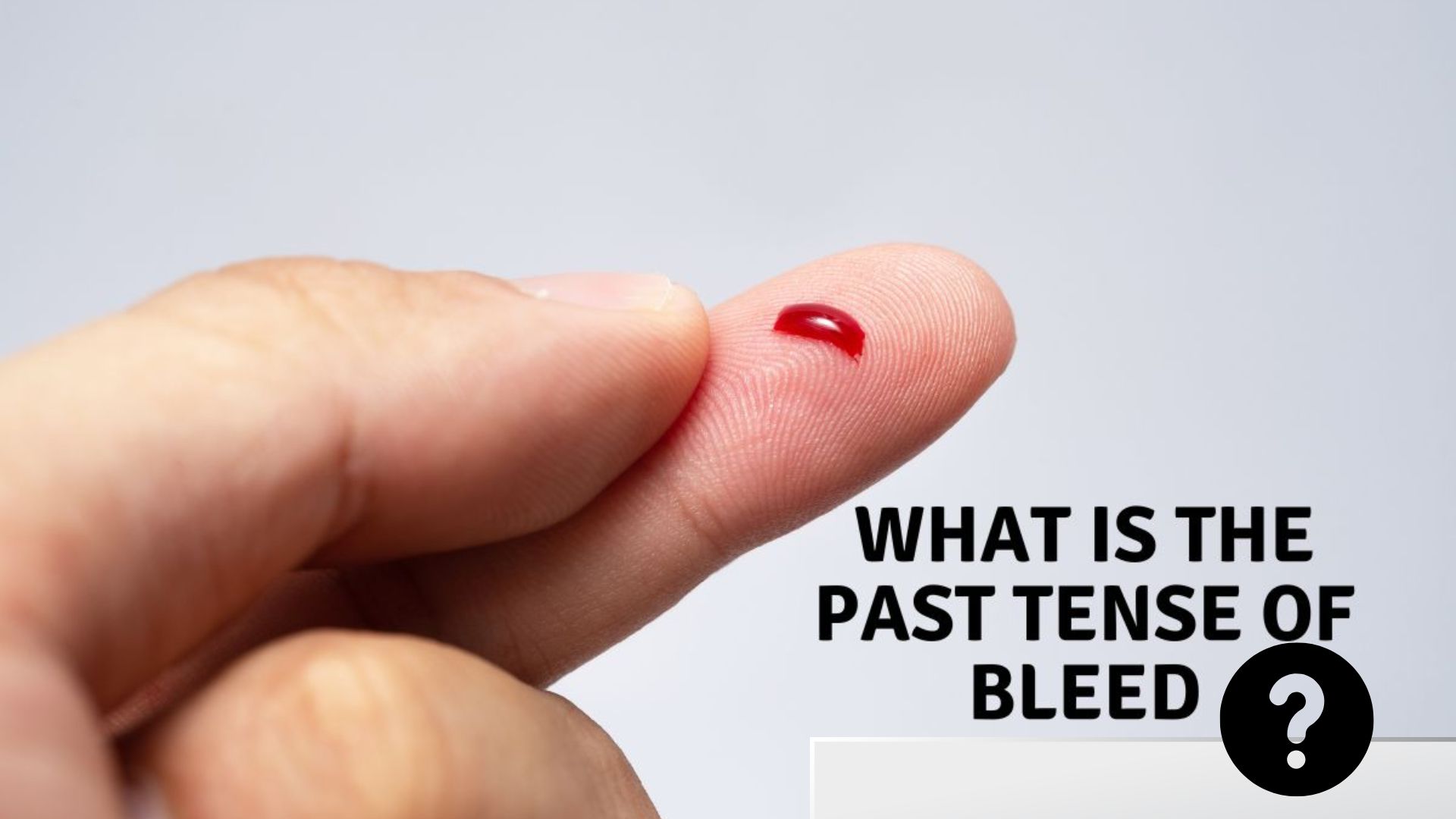If you’ve ever wondered whether to say “bleeded” or “bled”, you’re not alone. The English language can be tricky, especially when it comes to irregular verbs like bleed. While one version sounds like it follows a logical pattern, only one is actually correct.
So, let’s dig into it
What’s the past tense of bleed?

✅ The Correct Past Tense of Bleed Is… Bled
That’s right. “Bled” is the correct past tense and past participle form of the verb bleed.
- Present tense: bleed
- Past tense: bled
- Past participle: bled
❌ Incorrect: He bleeded after the accident.
✅ Correct: He bled after the accident.
So, where does this come from, and why does “bleeded” sound almost right to some people?
Understanding Why It’s Bled, Not Bleeded
🔤 Irregular Verbs and Vowel Changes
The verb bleed is classified as an irregular verb, which means it doesn’t follow the standard -ed rule for forming the past tense. That’s why “bleeded” is grammatically incorrect, even though it sounds like it should be right.
This irregularity occurs due to a vowel change a hallmark of many verbs with Proto-Germanic and Old English origins. Bleed belongs to a group of verbs that shift their internal vowel to form the past tense, such as:
- lead → led
- feed → fed
- breed → bred
- speed → sped
And yes, bleed → bled fits right in.
🧬 A Bit of Etymology: Where “Bled” Comes From

According to Merriam-Webster, bleed traces back to Old English “blēdan”, which came from Proto-Germanic “blōdijaną”, meaning to emit blood. Over time, sound shifts called phonological changes led to the modern forms we use today.
This historical evolution explains why verbs like bleed don’t play by the modern regular verb rules. It’s all part of the messy beauty of linguistic morphology and historical linguistics.
📧 Email Scenario Example: Using Bled in Context
Subject: Injury Report from Today’s Game
Hi Coach Matthews,
Just wanted to let you know what happened during practice. Marcus took a hard hit and bled from his nose quite a bit. The trainer cleaned him up, and he sat out the rest of the session.
He’s okay now, but I thought you should be informed.
Jake
In this realistic usage, you can clearly see how bled is used to describe a past action something that already happened.
🩸 Other Verb Forms of Bleed
Here’s a quick verb conjugation chart for bleed:
| Tense | Verb Form | Example Sentence |
|---|---|---|
| Present Simple | bleed | I bleed easily when I get a paper cut. |
| Present Participle | bleeding | She’s bleeding from a small wound. |
| Simple Past | bled | He bled for over 10 minutes. |
| Past Participle | bled | She has bled through her bandage. |
Understanding these forms helps you use them in everything from casual speech to medical reports.
❌ Why Do People Say “Bleeded”?
Let’s face it English grammar rules can get confusing. Most learners are taught that adding “-ed” makes something past tense. That works for regular verbs like:
- walk → walked
- jump → jumped
- call → called
So naturally, some assume bleed → bleeded. But that’s not how irregular verbs work.
⚠️ Common Grammar Mistake: Bleeded in Perfect Tense
Another place where “bleeded” pops up mistakenly is in perfect tense constructions.
❌ Incorrect: She has bleeded a lot after the surgery.
✅ Correct: She has bled a lot after the surgery.
Here’s how perfect tenses should be formed with bled:
- Present perfect: has/have bled
- Past perfect: had bled
- Future perfect: will have bled
🏥 Medical Usage: “Bled Out” and Related Terms
In medical contexts, you’ll often hear the phrase “bled out”, which means someone has lost a fatal amount of blood.
- The patient bled out before reaching the ER.
- He would have survived, but he had already bled out.
This kind of phrasal usage carries strong emotive and clinical weight, often found in surgery reports or trauma documentation.
🧠 Helpful Mnemonic: Think “Lead → Led” Just Like “Bleed → Bled”

Still find it confusing? Try this:
💡 If you know how to conjugate lead → led, then you know bleed → bled.
Both verbs change just one letter and are part of a vowel shift pattern that’s common among older, irregular English verbs.
💬 Idioms & Expressions Using “Bled”
English speakers also use “bled” in idiomatic ways:
- “My heart bled for him” – expressing deep sympathy
- “They bled me dry” – someone took all your money/resources
- “He bled for the cause” – used figuratively for sacrifice
These add color to language and are especially common in storytelling or emotional writing.
🧾 Recap: Key Takeaways
- Bleed is an irregular verb
- Past tense and past participle: bled, not bleeded
- Bleeded is never correct in standard English
- Used in phrases like “bled out”, “has bled”, “bled profusely”
- Linked historically to Old English and Proto-Germanic
- Remember: bleed → bled, just like lead → led
✅ Final Thoughts
Understanding irregular verbs like bleed can feel like wrestling a language puzzle. But once you learn the rules behind them especially the tense formation, verb conjugation, and phonological shifts it starts to click.
So next time you’re writing about an injury, a tragedy, or even a dramatic novel scene, remember: Nobody bleeded. They bled.

